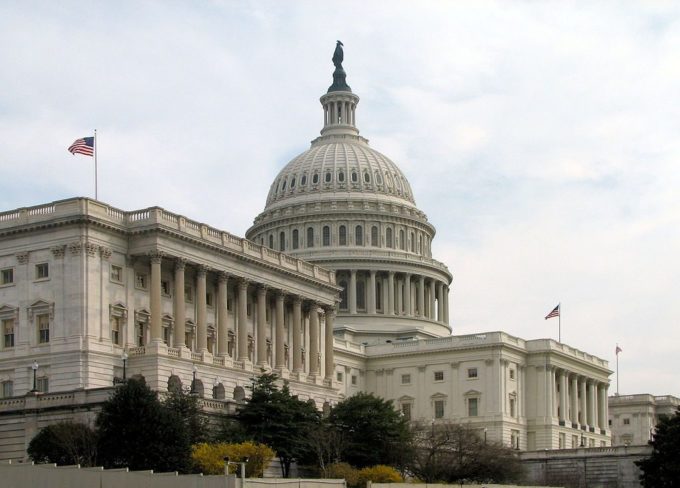
Congresswoman Speier’s Revenge Pornography Bill: Crossing the First Amendment Line?
By Priyanka Nawathe – Edited by Henry Thomas
H. R. Bill - Intimate Privacy Protection Act of 2016
On July 14, 2016, Democratic House Representative Jackie Speier from California’s 14th Congressional District proposed the Intimate Privacy Protection Act (“IPPA”). This legislation is designed to criminalize the display of sexually explicit conduct or body parts of an individual where displayed with a “reckless disregard for [that] person’s lack of consent to the distribution.” The proposed maximum imprisonment time is five years. The bill also contains several exceptions including those for law enforcement, reporting unlawful activity, “bona fide public interest,” and telecommunication and internet services providers who do not promote or solicit such content. Commentary from Sarah Jeong indicates that a prior version of this bill imposed liability on search engines, website operators, and software developers if they did not respond to takedown requests within 48 hours, however, this was removed from the final version of the act. According to Ars Technica, the purpose of this legislation is to make revenge pornography a federal crime. As Speier stated, “The damage caused by these attacks can crush careers, tear apart families, and, in the worst cases, has led to suicide.”
Motherboard has provided a summary of the history surrounding this bill. Although some believe the new bill is “not as bad as it could have been,” others conclude the bill is still likely to “face an uphill battle.” This is primarily because of the first amendment issues surrounding this proposed act.
This is not the first time a revenge pornography prohibition has been questioned due to constitutional issues. On September 23, 2014, a coalition of businesses represented by the ACLU Foundation of Arizona successfully challenged Arizona’s “nude photo law” which made the display and distribution of nude or sexual images without the subject’s explicit consent a felony punishable by up to four years in prison. Although the target of this law was revenge pornography, the law was phrased so broadly that acts such as professors showing the iconic “Napalm Girl” photograph, and bookstores selling books with artistic nude images could be prosecuted. The ACLU argued that because the broadness of this act criminalized protected free speech, it violated the first amendment. On July 7, 2015, the District Court of Arizona issued a final order enjoining enforcement of this bill.
However, IPPA is notably different from Arizona’s nude photo law. First, IPPA requires that the displayer or distributor show a “reckless disregard” for a lack of consent. This narrows the scope of criminal activity by increasing the level of mens rea required for prosecution. Second, Speier’s bill makes an exception for internet service providers and telecommunication providers, such as Google, Facebook, and Twitter, as long they are not promoting the pornographic material. Commentary from Sarah Jeong indicates that this exception was created in part due to Google’s lobbying and in part to receive support from large tech companies like Facebook and Twitter. The new wording is also more in line with the Communications Decency Act which also provides a liability shield for online platforms. This exception, again, creates a much narrower scope than Arizona’s nude photo law. However, it is unclear that this narrower scope is enough to avoid a First Amendment problem. The Supreme Court has recognized categories of unprotected speech, including child pornography, but the closest category covering revenge pornography is obscenity and it is debated whether or not pornography falls into this category. The more important question, however, is whether any unintended persons can be prosecuted under this Act. According to Fusion, the ACLU still thinks that this bill is too broad, and believes that increasing the mens rea to malicious intent would be more appropriate. An attorney with the Electronic Frontier Foundation worried that criminal sanctions, as opposed to increased civil liability, would be a “dangerous” method of addressing the problem. But supporters of this bill believe that a malicious intent requirement would make the bill too narrow, not covering those motivated by money or fame instead of an intent to harm. There are also concerns about the vagueness of the exceptions, particularly what falls under the “public interest” exception.
Congresswoman Speier’s current bill is an improvement over prior iterations of IPPA. It is narrow enough to not openly violate the First Amendment. However, the bill certainly comes close to the line drawn by the First Amendment and only time will tell whether this bill withstands a Constitutional test.
Additional Sources:
http://blog.bennettandbennett.com/2014/10/first-amendment-101/#fn1-7511 https://www.aclu.org/cases/free-speech/antigone-books-v-horne-challenge-arizonas-nude-photo-law?redirect=free-speech/antigone-books-v-horne-challenge-arizonas-nude-photo-law
Priyanka Nawathe is a 2L at Harvard Law School.